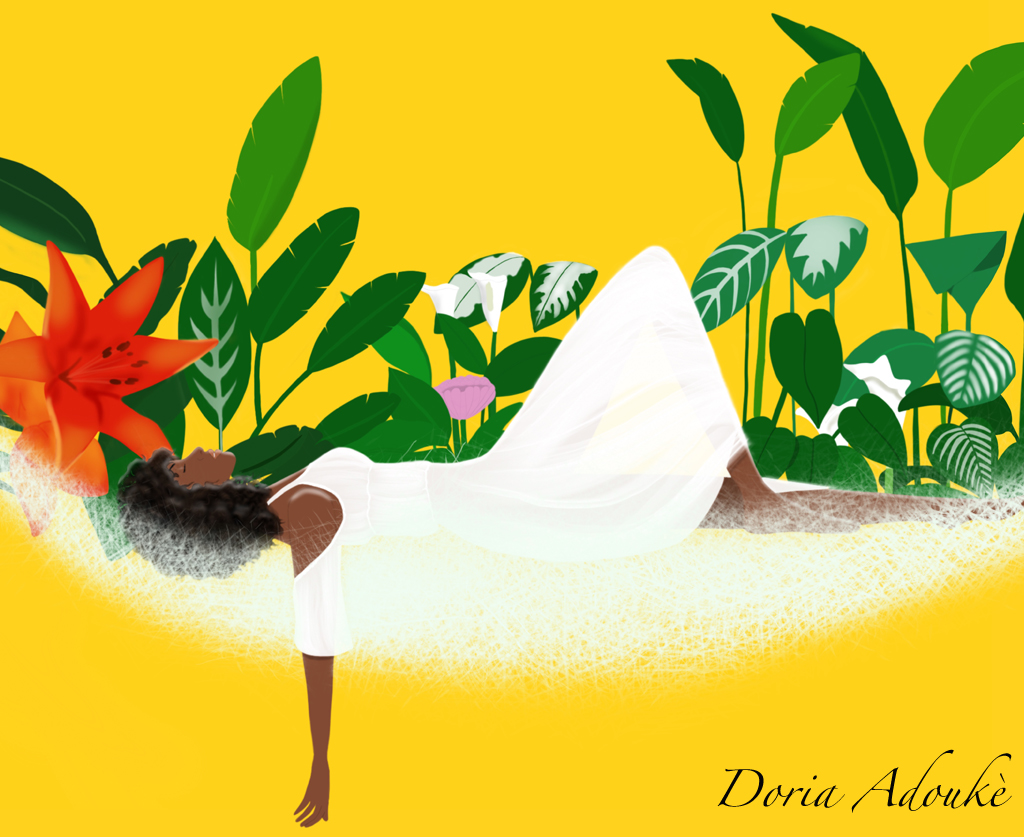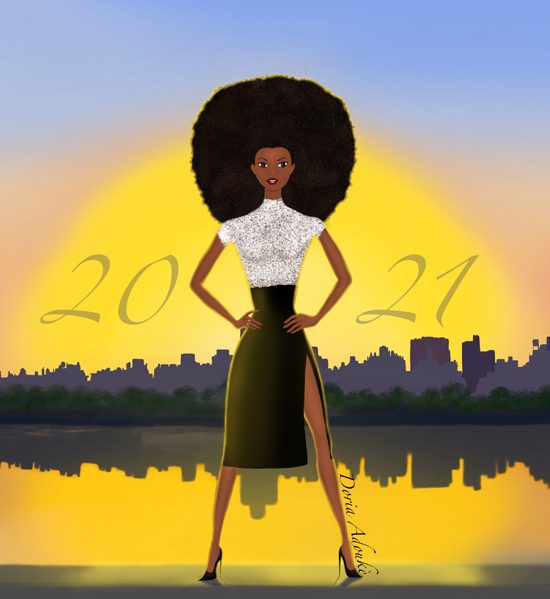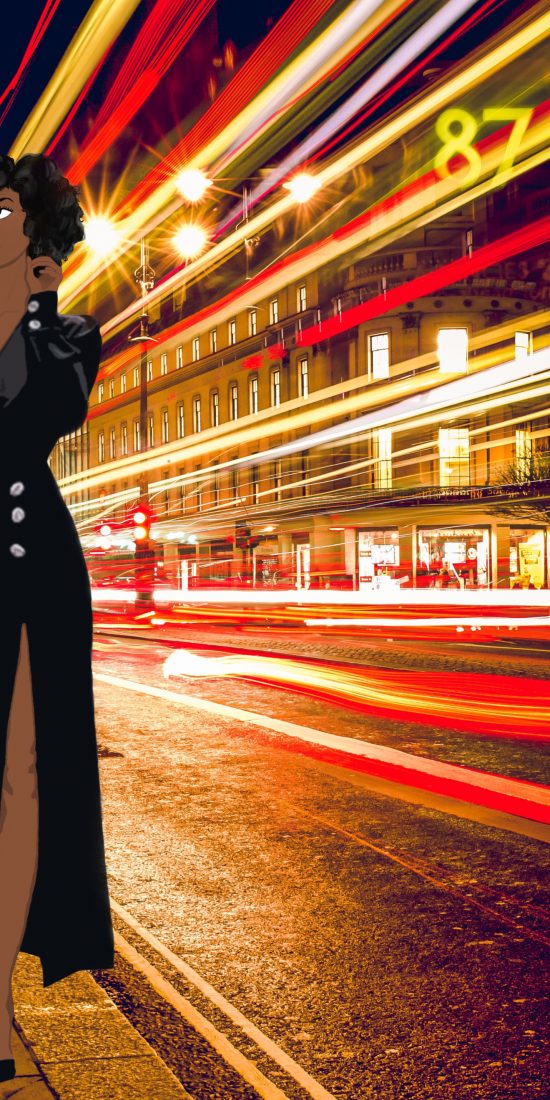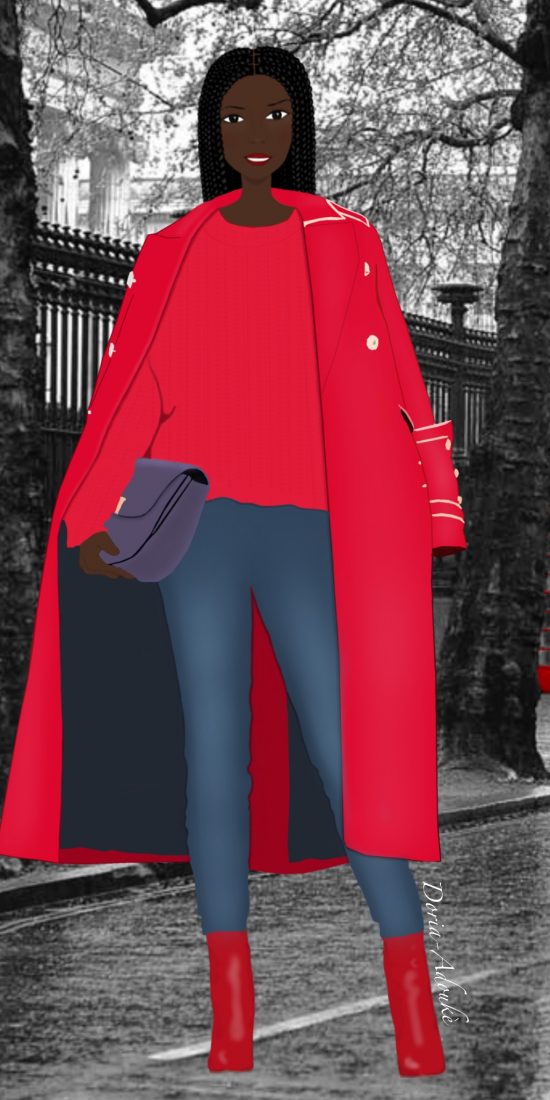
Illustration: Black Women Need a Rest
Black Burnout is a real issue that affects black women. In response to the emotional aftermath of George Floyd’s tragic death in May 2020, I created an illustration to shed light on the importance of rest for black women. This artwork serves as a reminder of the exhaustion, anger, and helplessness that black women often experience. As a brand committed to promoting multiculturalism and respect, we want to address misconceptions and provide guidance on supporting black women.
The Powerful Illustration of Black Women’s Need for Rest and Self-Care
This powerful illustration portrays a black woman seeking solace and respite, reclining in a hammock surrounded by vibrant plants and flowers against a striking yellow backdrop. It captures the essence of black women’s need for rest and self-care in the face of ongoing racial struggles and societal pressures.
Daily Confrontation with Racism: Black Women’s Ongoing Struggles
Since the tragic passing of George Floyd, white people have become more aware of racism in the United States. However, it is crucial to recognize that black women confront racism daily without the luxury of choosing when to address it. The exhaustion, strain, and fatigue experienced by black women are rooted in reading countless headlines and hearing commentators continuously deny the existence of racism. Black people have endured a traumatic 2020, and they continue to carry the weight of it all. The phrase “I’m tired” resonates deeply within the black community, reflecting a collective weariness. It encompasses the fatigue of not feeling safe, witnessing unjust killings of black lives, frustration with the failure to address the root causes of anger, and the exhaustion caused by living in a privileged bubble where racism is disregarded. It also includes the daily experiences of being treated differently at work, the dismissal of emotions masked under the assumption of strength, and the toll that racism takes on mental and physical health. This exhaustion signifies the tireless fight for black lives to matter.
Here are some ways white people can effectively support black women:
- Respectful Support: Approach black women with empathy and a willingness to listen, without projecting your pain onto them. Validate their experiences without seeking validation for your own feelings.
- Self-Education: Take the initiative to educate yourself about racial issues. Engage in reading, accessing resources, and seeking diverse perspectives instead of relying on black women to educate you.
- Reciprocity, Not Expectation: Foster an environment of mutual learning and support. Engage in genuine, reciprocal relationships that acknowledge and uplift black women’s experiences, recognizing that they were not created to serve or educate others.
Black Burnout: A Unique Experience Rooted in History
Black burnout presents a unique experience that differs from the widely discussed millennial burnout. While many articles touch on the exhaustion and anxieties of the younger generation, they often fail to address the specific challenges faced by black millennials. The burnout of black women is intertwined with a long history of struggle and resilience, passed down through generations. From the Great Depression to the present day, black women have shouldered immense responsibilities to ensure the survival of their families. The currency of black love was providing basic survival needs, leaving little room for breaks or self-care. This historical context frames black burnout in a distinct manner
Detrimental Effects of Black Burnout on Mental and Physical Health
Black burnout has detrimental effects not only on mental well-being but also on physical health. Economic disparities faced by black women, who earn significantly less than their white, male counterparts, contribute to the stress they endure. The constant grind and everyday racism take a toll on black women’s bodies, causing accelerated biological aging. Additionally, black maternal death rates, especially among black academics, add to the challenging landscape. Symptoms of black burnout can include teeth grinding, sleep loss, and the development of polycystic ovary syndrome (PCOS). The relentless pursuit and hustle overshadow self-care, leading to a detrimental cycle of exhaustion and compromised well-being.
The Cost of Self-Care in Combating Black Burnout
In combating black burnout, we acknowledge the importance of self-care but recognize that it comes at a cost. Pursuing mental and physical well-being in the current sociopolitical climate requires financial resources, making self-care a privilege. Various forms of self-care, such as therapy, life coaching, and fitness, can help prioritize black women’s sanity and health. However, the expenses associated with self-care can add a significant financial burden. Despite the strain, prioritizing mental and physical health is crucial, considering the consequences of past breakdowns. The relentless drive and determination of black women are fueled by the fear of failure, adding to the weight of burnout experienced by black millennials.
Prioritizing Rest and Empowering Black Women
Black women continue to endure the daily fight against racism, and they deserve rest. Prioritizing their well-being and providing opportunities for rest, rejuvenation, and self-care is crucial. Our empowering art print called “Black Girl Magic” serves as a visual reminder of this message and is available for purchase in our shop. By bringing this illustration into your space, you not only support black artists but also contribute to a more inclusive and empathetic society.
Visit our shop today and acquire this empowering art print, “Black Girl Magic,” which captures the importance of rest and rejuvenation for black women. By displaying this artwork, you express your support and play an active role in fostering a world where everyone can thrive and find solace amidst the ongoing struggle for equality





